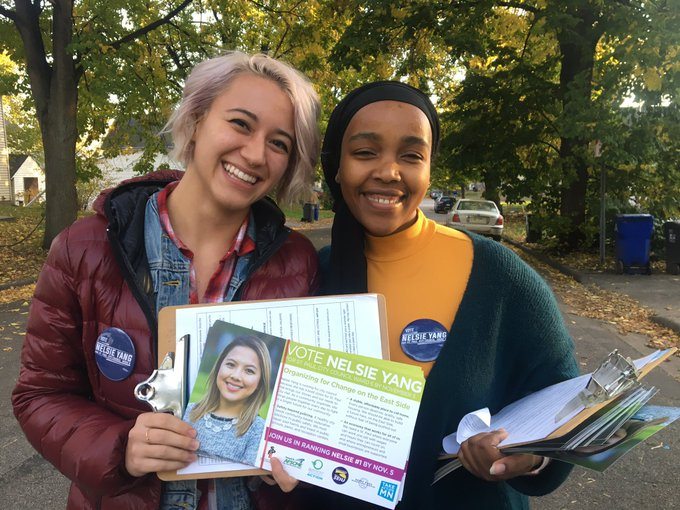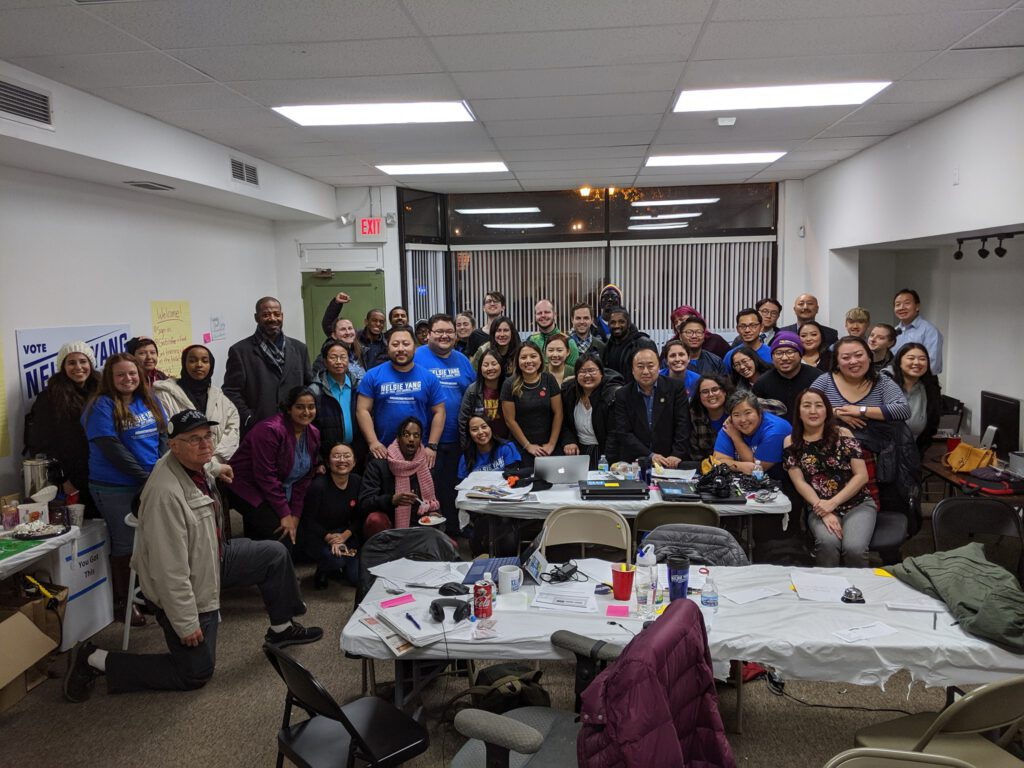On Tuesday, November 5, we made history.
I grew up never thinking people who looked like me could be in political office. St. Paul City Council has never had a Hmong woman elected. City Councilmember Dai Tho was the first elected I met in person who shared my Hmong identity. That in and of itself broke a lot of narratives for me. Meeting Dai, I remember thinking to myself, “If he can do it, I can do it, too.”
Despite the lack of representation, as an organizer with TakeAction Minnesota, I began to really envision myself in office. I experienced the pushback as we were fighting for the most basic things—dignified wages, paid time to care, the right for people with records to vote, the ability to make decisions about our bodies and future, access to public health care. Basic necessities that our government is responsible for making sure each one of us has.
If I was the one sitting in office, I knew that I would put the lives of people first. That’s why I decided to run.
For the People
I had many experiences on the campaign trail that solidified why I was running for office, but one moment really sticks out.
We deserve a government that doesn’t leave people behind and elected officials who are present and responsive to people.
In February, one of those bitter, winter nights where the low temperature was in the negatives, our campaign office got a call around 7 p.m.
A resident from the Edgerton Hi-Rise had seen our campaign flyer and called us. The heat went out in their 201-unit building. They had already called public housing officials and community agencies. They were worried about the elderly, people with disabilities, and other vulnerable people in the building.
They were told to turn their ovens on and wait.
As someone who grew up in poverty, as a renter—I was furious. I thought about my own grandma, how would I feel if this happened to her? It was unacceptable.
I got on the phone immediately to demand that leaders in our community do something.
I went to the Hi-Rise. We crowdsourced heaters and hand warmers from people across the Twin Cities. Tin Cups donated warm food. I was grounded in the courage of the residents, who knew they deserved better and refused to give up. It gave me the political courage to do the same.
At 11:30 p.m. the heat turned back on.
We deserve a government that doesn’t leave people behind and elected officials who are present and responsive to people.
I knew in my gut right then that I needed to win, so that residents on the East Side were not left behind.
With the People
Experiences like the Hi-Rise are why I wanted to serve on the City Council, because this work is so close to home. The decisions made by the City Council impact our daily lives. I ran to make sure that the people leading in my neighborhood were forward thinking, progressive, bold, and unapologetic.
I’m incredibly proud to be the youngest and first Hmong woman elected to St. Paul City Council, and I’m committed to not being the last.
There’s never a perfect time to be ready to run for office. Leaders need to do it because they really care and are committed to making sure people can live full, joyful lives. When we ground our vision in people, that’s the most powerful and transformative thing.
Now that I’m elected, I want to build a close-knit community on the East Side. Whether it’s meeting one-on-one, hosting neighborhood meetings, getting out the vote, I want all my neighbors to feel empowered to take action and be engaged in the decision making happening at City Hall. That’s what co-governance is all about—leading together.

People like me have been told, explicitly and implicitly, that we shouldn’t run, that we shouldn’t lead. But I refuse to stay contained. I’m incredibly proud to be the youngest and first Hmong woman elected to St. Paul City Council, and I’m committed to not being the last.
There’s a lot at stake in 2020. The people hurt most by racism, sexism, and corporate greed are people who live in places like Ward 6. We need to continue to come together across race, gender, and class and fight for each other—in our communities, in our government, and at the polls. Because this election was about more than any single race or win. It was about the collective future we are building together.
So let’s get to work.

